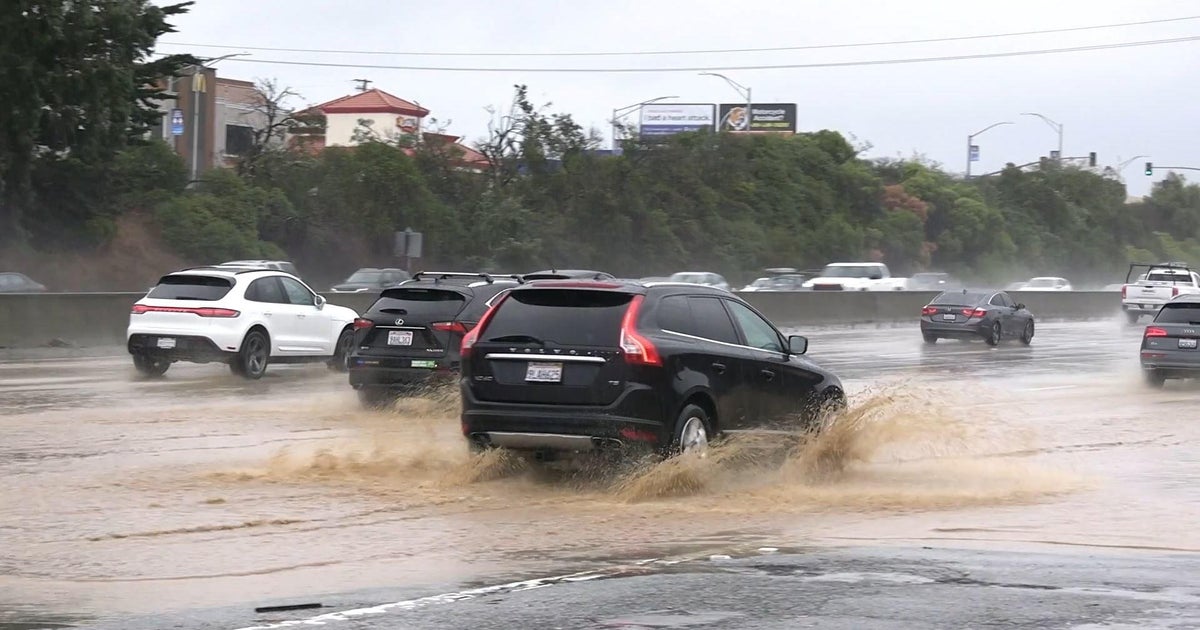California leaders denounce Supreme Court ruling limiting EPA authority to regulate greenhouse gas emissions
SAN FRANCISCO -- The U.S. Supreme Court ruled Thursday that the federal Environmental Protection Agency does not have broad authority to regulate greenhouse gas emissions from power plants under the Clean Air Act, undermining the fight against climate change.
The news prompted many California leaders to express concern about the West Virginia v. EPA decision, which was led by a 6-3 conservative majority and written by Chief Justice John Roberts.
Gov. Gavin Newsom said that the decision "turned back the clock" on the fight against climate change.
"The Supreme Court sided with the fossil fuel industry, kneecapping the federal government's basic ability to tackle climate change," Newsom said.
Daniel Farber, a professor at the University of California Berkeley School of Law, said that the decision is a hit to the fight against climate change, though it doesn't prevent action from the Biden administration.
Farber said that while legislation passed in Congress is one of the only long-term solutions, certain measures that could be enacted by the administration, like requiring adding natural gas or wood chips to coal firing, can reduce emissions by 50 percent and would likely not be struck down by Thursday's case's precedent.
"It's still a significant step," Farber said. "I believe from reading the opinion a couple of times that that would be consistent with what the court says."
Newsom said the decision only emphasized the role of California to continue fighting climate change, leading other states in the U.S.
"While the court has once again turned back the clock, California refuses to go backward -- we're just getting started," Newsom said. "California will remain the tentpole for this movement with record investments and aggressive policies to reduce pollution, to protect people from extreme weather, and to leave our children and grandchildren a world that's better off than we found it."
Newsom said that California is leading the way with efforts to phase out oil drilling and fracking and a $53.9 billion investment in a plan to fight climate change.
Farber added that the decision will likely primarily not affect California due to strong state laws fighting climate change, though the state sources electricity from other states that will be affected.
U.S. Sen. Alex Padilla said the court's decision is in line with the Republican party, is furthering distrust in the Supreme Court and takes away power from federal agencies to regulate in "any number of areas."
"Clearly, the Supreme Court's right-wing majority no longer feels bound by precedent, Congressional intent, or even scientific facts if it stands in the way of their extreme agenda," Padilla said.
The senator called on his colleagues in Congress and President Joe Biden to "provide a check" on the Supreme Court before "faith in our democracy" suffers.
California Attorney General Rob Bonta was similarly disappointed in the decision, calling it "misguided."
"It will have dangerous consequences," Bonta said. "We are running out of time in the fight against climate change, and we need all levels of government working together to take action before it's too late."
Bonta said that California's programs fighting climate change will continue to reduce emissions, but that the state is also pushing for stronger regulations at the federal level.
"With the future of our planet at stake, our commitment to tackling the climate crisis cannot waver," Bonta said.
Rep. Mike Thompson, D-St. Helena, also voiced concern for the fight on climate change, calling on Congress to pass legislation, including Thompson's Growing Renewable Energy and Efficiency Now (GREEN) Act.
"Climate change is one of the most consequential issues that our world faces today, and this ruling from the Supreme Court will have lasting consequences in our ability to protect our communities from climate change," Thompson said. "This decision is deeply concerning, and further delegitimizes the Supreme Court in the eyes of the American public."
San Francisco City Attorney David Chiu voiced similar frustration with the Supreme Court's recent decisions, including West Virginia v. EPA and Dobbs v. Jackson Women's Health Organization, which overturned Roe v. Wade and its constitutional protections for abortion last week.
"I am sickened by the direction this Supreme Court is taking our country," Chiu said. "Today, the Court's activist conservative majority took yet another step towards implementing their radical right wing agenda."
Chiu added that Californians have been dealing with the effects of climate change already, as the state enters the third year of drought and continues to deal with long and harsh wildfire seasons.
"Instead of heeding those warnings, the Court chose to make it harder to save our planet," Chiu said. "This ruling will also have implications for federal agencies beyond the EPA, making it harder to provide aid and run programs Americans have come to rely on."
The city attorney called on Congress to act but vowed that his office would continue to hold fossil fuel companies accountable.
San Francisco Baykeeper, an organization that works to keep the Bay clean and patrol and investigate polluters, said that the decision was only adding to the list of cases that damage "our democracy."
"Going forward -- for anyone who cares about clean air, clean water, individual autonomy, privacy, public health, public safety, or democratic institutions -- the most frightening words imaginable begin with: 'The Supreme Court has agreed to review,'" senior attorney Eric Buescher said. "While Baykeeper's work to hold polluters accountable has always been difficult, it just got a lot harder. But thankfully, when action on the federal level might fail us, we still have California's environmental laws to back us up."
Buescher also called on those who care about human rights, the environment or democracy to turn out.
"Elections have consequences," Buescher said.



